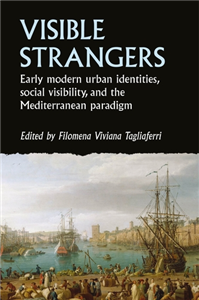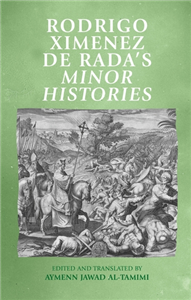Your Search Results
-
Promoted Content
-
Promoted ContentHumanities & Social SciencesJanuary 2026
The Gulf monarchies after the Arab Spring
by Cinzia Bianco
-
 Trusted Partner
Humanities & Social SciencesApril 2017
Trusted Partner
Humanities & Social SciencesApril 2017Britain and the formation of the Gulf States
Embers of empire
by Shohei Sato, Andrew Thompson, John M. MacKenzie
This book offers new insight into the end of the British Empire in the Middle East. It takes a fresh look at the relationship between Britain and the Gulf rulers at the height of the British Empire, and how its effects are still felt internationally today. Over the last four decades, the Persian Gulf region has gone through oil shocks, wars and political changes, and yet the basic entities of the southern Gulf states have remained largely in place. Drawing on extensive multi-archival research in the British, American and Gulf archives, this book illuminates a series of negotiations between British diplomats and the Gulf rulers that inadvertently led Bahrain, Qatar and the UAE to take their current shapes. The story addresses the crucial question of self-determination versus 'better together', a dilemma pertinent to anyone interested in the transformation of the modern world.
-
 Trusted Partner
October 2022
Trusted Partner
October 2022What Does the Ball Think?
Why football is not just kicking
by Johannes Schweikle, Oliver Lück
A football is a moody thing, and the art of mastering it a highly challenging concern. Whether fan or philosopher, football is a fascination, and its various facets are revealed in this anthology with memorable, intelligent and curious contributions. How and with what (human rights-violating) methods did Qatar prepare for the World Cup? Actress Christiane Paul explains why she supports FC Bayern. Herman van Veen explains the difference between Dutch and German football fans, and the report 'Five balls for Angola' takes readers on a journey to football in Africa. A book for dedicated fans and critical football observers.
-
 Trusted Partner
Humanities & Social SciencesJanuary 2022
Trusted Partner
Humanities & Social SciencesJanuary 2022The Gulf States and the Horn of Africa
by Robert Mason, Simon Mabon, Edward Wastnidge
-
 Trusted Partner
May 2018
Trusted Partner
May 2018Ersatzspielfelder
Zum Verhältnis von Fußball und Macht | Hintergrundbuch zur Fußball-Weltmeisterschaft 2022
by Timm Beichelt
Die Vergaben der Weltmeisterschaften 2018 und 2022 nach Russland und Katar haben erneut gezeigt, dass ein Fußballplatz nie nur ein grünes Rechteck ist, auf dem 22 Spieler einem Ball hinterherjagen. (Profi-)Fußball ist stets zugleich ein Ersatzspielfeld der Politik: Machthaber unterschiedlicher Couleur inszenieren sich, Normen wie Wettbewerbsdenken werden eingeübt, Nationalteams sind ein Indikator dafür, welche Gruppen als zur Nation gehörig betrachtet werden und welche nicht. Anhand von Beispielen aus Deutschland, Frankreich und Russland untersucht Timm Beichelt das Verhältnis von Fußball und Macht. In seinem Essay geht er dabei zugleich der Frage nach, ob das Spiel auch heute noch eine Plattform für Gleichberechtigung, Toleranz und ein authentisches Leben sein kann.
-
 Trusted Partner
Humanities & Social SciencesMarch 2017
Trusted Partner
Humanities & Social SciencesMarch 2017The French empire between the wars
Imperialism, politics and society
by Martin Thomas
By considering the distinctiveness of the inter-war years as a discrete period of colonial change, this book addresses several larger issues, such as tracing the origins of decolonization in the rise of colonial nationalism, and a re-assessment of the impact of inter-war colonial rebellions in Africa, Syria and Indochina. The book also connects French theories of colonial governance to the lived experience of colonial rule in a period scarred by war and economic dislocation.
-
 Trusted Partner
Humanities & Social SciencesJune 2011
Trusted Partner
Humanities & Social SciencesJune 2011The Europeanisation of the Western Balkans
EU justice and home affairs in Croatia and Macedonia
by Florian Trauner, Emil Kirchner, Thomas Christiansen
This book deals with the scope and nature of the EU's external influence over South-Eastern Europe in the present enlargement. By elaborating on the Europeanisation of the Western Balkans in a systematic, theory-oriented and comparative way, the book provides rich insight into the dynamics of the current enlargement and offers a comprehensive analysis of the EU's avenues of external leverage in the field of justice and home affairs, a key sector of cooperation in the EU-Western Balkans relations. The book is an important contribution towards a better understanding of how the EU's use of pre-accession conditionality has changed since the Eastern enlargement. It will be of interest to decision-makers, officials and academics concerned with adaptation and transformation processes in South-Eastern Europe and the possibilities and limitations of the EU's influence in the outside world. ;
-
 Trusted Partner
Humanities & Social SciencesOctober 2020
Trusted Partner
Humanities & Social SciencesOctober 2020The European Union and its eastern neighbourhood
Europeanisation and its twenty-first-century contradictions
by Mike Mannin, Paul Flenley
This volume is timely in that it explores key issues which are currently at the forefront of the EU's relations with its eastern neighbours. It considers the impact of a more assertive Russia, the significance of Turkey, the limitations of the Eastern Partnership with Belarus and Moldova, the position of a Ukraine in crisis and pulled between Russia and the EU, security and democracy in the South Caucasus. It looks at the contested nature of European identity in areas such as the Balkans. In addition it looks at ways in which the EU's interests and values can be tested in sectors such as trade and migration. The interplay between values, identity and interests and their effect on the interpretation of europeanisation between the EU and its neighbours is a core theme of the volume.
-
 Trusted Partner
Humanities & Social SciencesSeptember 2025
Trusted Partner
Humanities & Social SciencesSeptember 2025Visible strangers
Early modern urban identities, social visibility, and the Mediterranean paradigm
by Filomena Viviana Tagliaferri
Visible strangers is a collection of essays on the nature of cultural pluralism in the Mediterranean and the different ways in which this was managed in various cities during the early modern period. The book's nine chapters considers new case studies, where authors offer a diachronic view of the nature of the co-presence of minorities in different urban spaces, investigated through the lens of the fascinating relationship between visibility and identity. The considered case studies cover different areas of the Mediterranean space: the Adriatic, the Ottoman empire between Asia and Africa, the Italian and Iberian peninsulas, the island of Malta, at the centre of the Mare Nostrum and host to many of its influences. The analysis of the way cultural pluralism expressed itself wishes to overcome the bias induced by 'Mediterraneanism', that has led to the Mediterranean as an area of study hardening into a conceptual category.
-
 Trusted Partner
Humanities & Social SciencesJuly 2006
Trusted Partner
Humanities & Social SciencesJuly 2006Democracy in Scandinavia
Consensual, majoritarian or mixed?
by David Arter, Bill Jones
This book is about the distinctive features of Scandinavian democracy, the state of Scandinavian democracy and the classification of the Scandinavian democracies. It breaks new ground in challenging the established status of the Scandinavian countries as 'consensus model democracies'. The book poses three main questions. First, what are the distinctive features of the five Scandinavian political systems when compared with the Westminster model of democracy? Next, how well does the evidence from recent commissions suggest that Scandinavian democracy is working in practice? Finally, is Scandinavian democracy consensual, majoritarian or mixed? The nature of legislative-executive relations is explored, with a particular focus on the role of the parliamentary opposition and its involvement in policy-making. The central conclusion is that all the Nordic states are majoritarian democracies, albeit with varying amounts of consensual legislative behaviour. ;
-
 Trusted Partner
Trusted Partner
-
 Trusted Partner
July 2010
Trusted Partner
July 2010Kundalini
Erweckung der geistigen Kraft im Menschen
by Krishna, Gopi / Übersetzt von Pleyer, Sinai R. B.; Übersetzt von Mangoldt, Ursula von
-
 Trusted Partner
Trusted Partner
-
 Trusted Partner
Trusted Partner
-
 Trusted Partner
Trusted Partner
-
 Trusted Partner
Trusted Partner
-
 Trusted Partner
Trusted Partner
-
 Trusted Partner
Humanities & Social SciencesJanuary 2026
Trusted Partner
Humanities & Social SciencesJanuary 2026Rodrigo Ximenez de Rada’s Minor Histories
by Aymenn Al-Tamimi
This work provides the first complete English translation of works by Toledan archbishop Rodrigo Ximénez de Rada (1170-1247 CE), whose 'Minor Histories' are sequels to his larger 'Gothic History' and thus round off his grand history of Spain project that he began at the request of King Ferdinand III. The 'Minor Histories' include Rodrigo's 'History of the Arabs' that can be considered the first surviving Western monograph focused on Arab and Islamic history and thus occupies a unique position in the medieval Latin corpus of writings. In addition to the translation, this book provides a thorough and accessible introduction to the life and works of Rodrigo, making sense of the context in which he wrote and his historical method. The translations are thoroughly annotated including cross-references to other Latin and Arabic sources for comparison.
-
 Trusted Partner
Trusted Partner
























